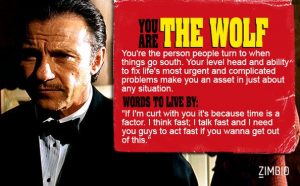Using archetypes for a distinctive personality: Direct Line
Insurance company Direct Line’s use of archetypes to define their brand personality is one of many great case studies in ‘Advertising Works‘ – the annual treasure chest of winners from the IPA Advertising Effectiveness Awards. The campaign significantly boosted distinctiveness and brand preference, increasing volumes of quotes for both car (+10%) and home insurance (16%). Overall, the campaign returned an estimated £1.22 of net profit for every £1 invested.
1. A brand in trouble
Direct Line revolutionised insurance in the mid 1980’s by cutting out the middle-man, the insurance broker, and selling direct. The brand grew successfully for the next 25 years to be one of the UK’s leading home and motor insurers. However, in 2014 the brand was in trouble. The brand has lost distinctiveness versus other insurance companies, a problem made worse by the growth in price comparison websites like Moneysupermarket.com that reduced the role played by brands and emphasised price.
Reduced ad spend was an issue. But positioning and communication was also part of the problem. The ‘Take the Direct Line’ campaign launched in 2012 (below) focussed on the size and scale of the brand, but didn’t covey a relevant benefit. It was time to go back to the drawing board.
2. A new positioning
A core target of consumers looking for control was identified: they want insurance that is flexible, simple and efficient. A range of positioning ideas were explored, with the most relevant and distinctive being ‘Hassle-free insurance that just works’. This territory of high performance insurance appeared to be an untapped area.
3. Add some ‘sausage’ …
The team needed some product ‘sausage’ to make the positioning real and give it substance. Research showed that 7 out of 10 complaints related to how quickly claims were settled and keeping customers informed. A pipeline of new propositions was created, with the first new offer being ‘Your car fixed in seven days or we pay you £10 a day until the job is done’.
A significant improvement in business capability accompanied this claim, to increase from 35% to 70% the cars repaired within the seven-day period.
4. … and some ‘sizzle’
The emotional part of communication is also important, as it is proven to help with memory encoding. And key to creating this emotional ‘sizzle’ is your brand personality that guides tone, style and feel. To help define the personality ad agency Saatchi & Saatchi used archetypes, a technique we discussed in detail in an earlier post here. Archetypes draw on mythical figures from stories, books and movies and can add texture and colour to your brand personality definition. For example the ‘Creator’ archetype represents ‘creativity, inspiration and imagination’, characteristics of brands like Apple and Lego.
The agency initially proposed using the concept of the ‘Hero’, and archetype representing ‘fortitude, courage, conviction and steadfastness’; Direct Line would ‘rescue’ consumers in distress. But this din’t feel quite right. Inspiration came from the cult movie Pulp Fiction and the character Winston Wolf, the gangland ‘fixer’. As the agency explains in Advertising Works, “He was a superb parallel – a call away, knows exactly what to do, executes without fuss, gets out of your life.”

5. Create a distinctive brand property
Keitel himself was hired to feature in the campaign, which told emotionally involving stories based on solid and distinctive functional claims, such as the ‘Fixed in seven days or we pay’ proposition mentioned earlier. The ‘Fixer’ character was a brand property that helped boost distinctiveness, along with other consistent executional elements: the narrative structure, the Pulp Fiction-esque music and the humour (When the customer looks at her dented car and says “I’d like to get my hands on who did this,” Wolf replies “I can make them disappear (the dents that is)”.
In conclusion, the Direct Line story is a great example of a brand remembering and refreshing what made it famous, combining tangible product innovation with emotional sizzle to boost distinctiveness and drive growth.
It also prompts me to watch Pulp Fiction again after all these years. That’s tonight’s viewing sorted!


